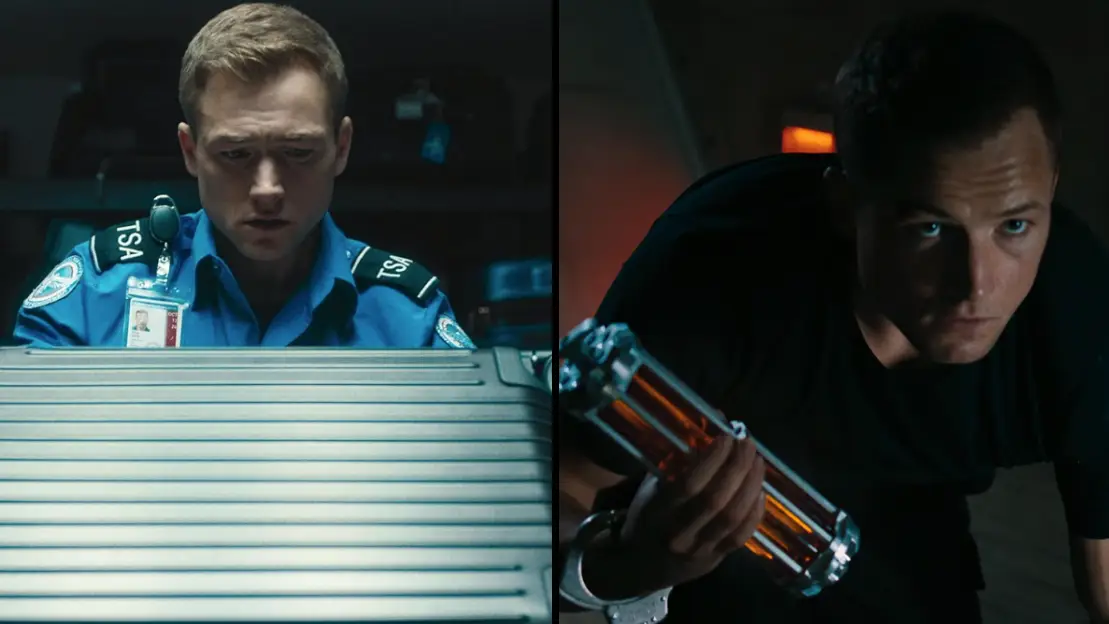
Netflix has a new number one film and fans can't get enough of the Christmas themed action thriller starring Taron Egerton and Jason Bateman.
Released to the streaming giant on Friday (13 December), it stars Egerton of Kingsman fame as Ethan Kopek, a TSA officer at Los Angeles International Airport (LAX) working a gruelling Christmas Eve shift before enjoying festivities with his pregnant girlfriend.
That is until Hollywood heavyweight Bateman - known for countless roles including in Ozark, Arrested Development, and Horrible Bosses - causes a whole world of problems as a nameless character known only as 'the Traveler' in the credits.
Advert
The film - spoiler warning from here on in - focuses on the Traveler demanding multiple things from Kopek, threatening to kill his girlfriend if he doesn't follow his high stake demands.
It sees Kopek, who is checking bags at airport security, allow a carry-on suitcase carrying deadly nerve agent Novichok to pass by without any warning.
The end result? Kill an entire plane of passengers, including a Washington DC Congresswoman.
With the case finding its way on to the plane, Kopek boards it via the luggage hatch where he tries to disarm the bomb - only to be thwarted by the Traveler.
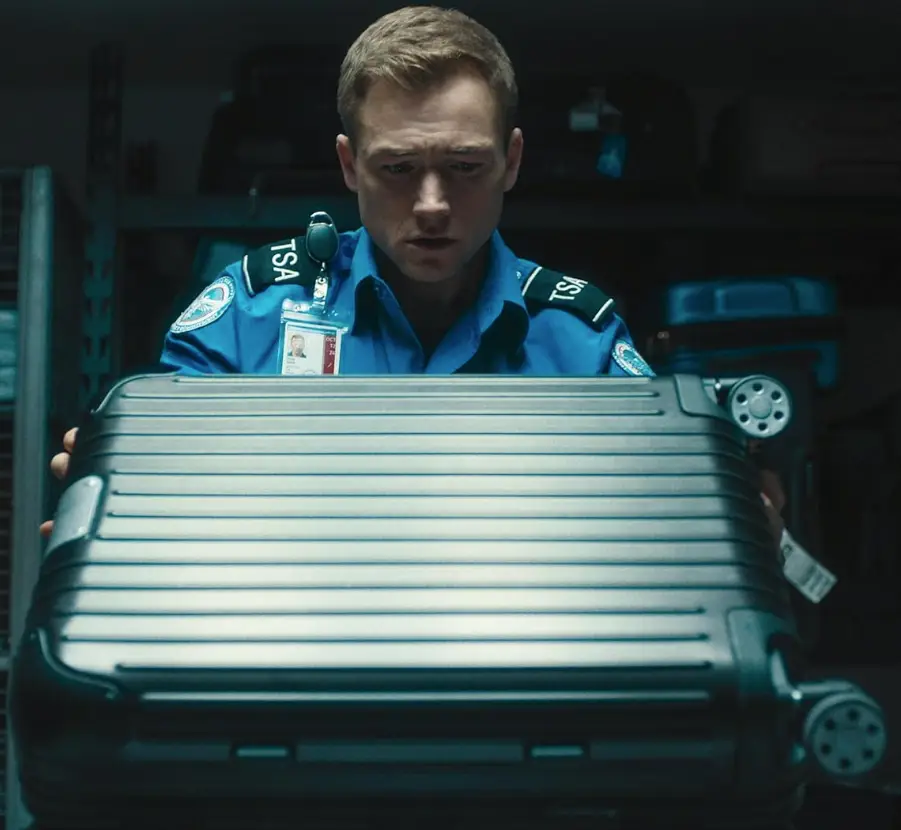
The two of them come to blows, with Kopek shot by the Traveler.
Thankfully, though, Kopek gets the upper hand, locking him in an airtight freezer unit in the cargo hold - alongside the Novichok, which is released and kills him.
Labelled a hit with fans, many have taken to social media to label it a '10/10' film that is like a 'modern day Die Hard'.
A very real Novichok threat
Created by the Soviet Union and Russia between the years of 1971 and 1993, Novichok - meaning 'newcomer' in English - is a group of nerve agents that cause immense farm to organic matter.
Officially labelled chemical weapons, they are claimed to be the deadliest ever nerve agent that humanity has create.
The purpose of its creation was to be undetectable by NATO during the 1970s and 1980s and to overcome chemical protective uniform if encountered by NATO personnel.
Since 1997, it has been banned under the Chemical Weapons Convention of 1997; something Russia has signed and ratified.
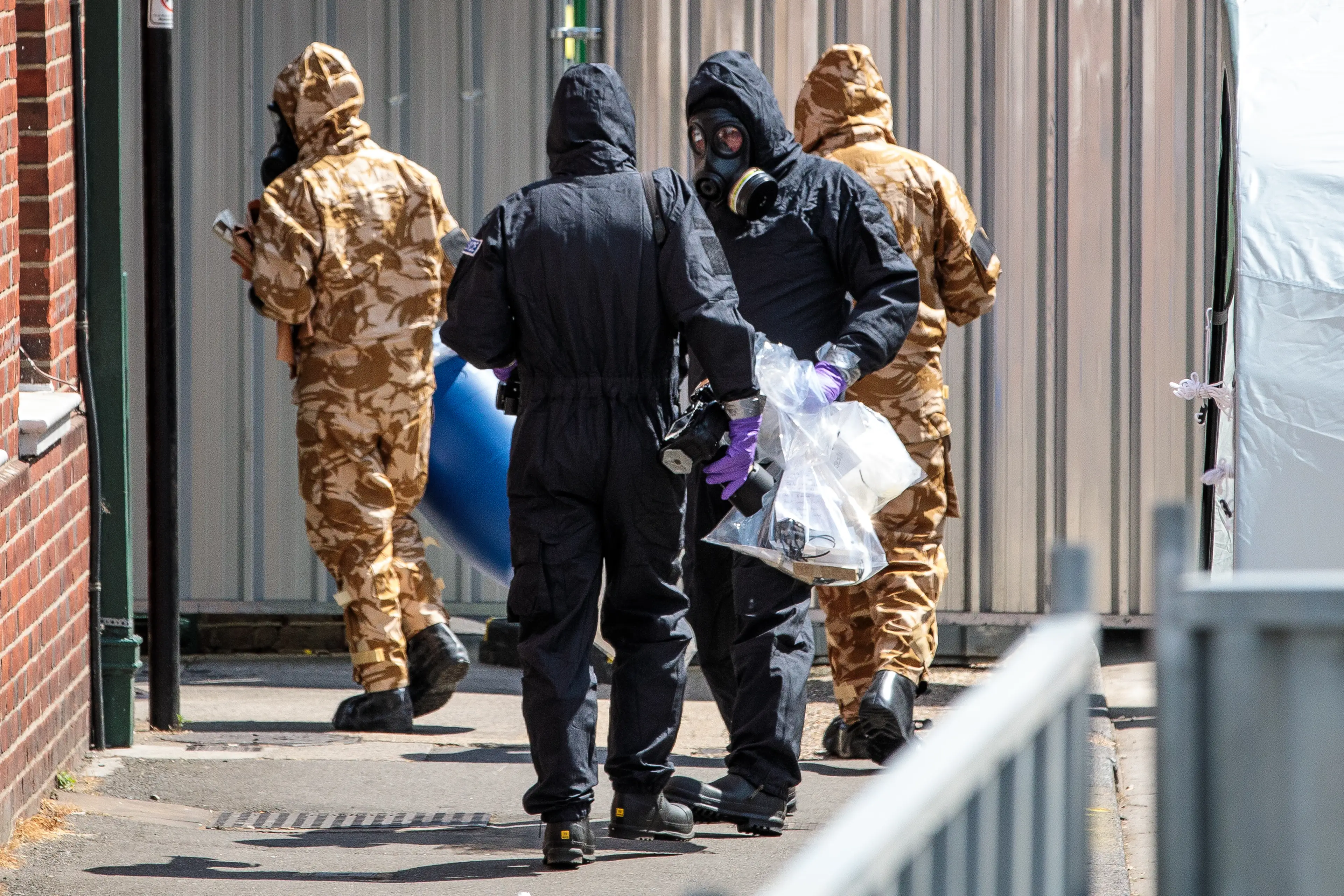
Is there a Novichok antidote?
While Carry-on says there is no antidote for Novichok, it's not quite true.
In 2018, Sergei Skripal - a former Russian military officer who became a British informant - was poisoned with Novichok alongside his daughter, Yulia, in an incident that is known as the Salisbury Poisonings. Police officer Nick Bailey was also poisoned after responding to the incident and coming in to contact with the Skripals.
Three months later, two British nationals in Amesbury - seven miles north of Salisbury - became seriously ill after coming in to contact with the nerve agent after finding a perfume bottle containing Novichok - with enough dose inside it to kill thousands of people.
One of the two, Dawn Sturgess, sprayed it on her wrist. She fell in within 15 minutes and died just over a week later. The other victim, Charlie Rowley, survived.
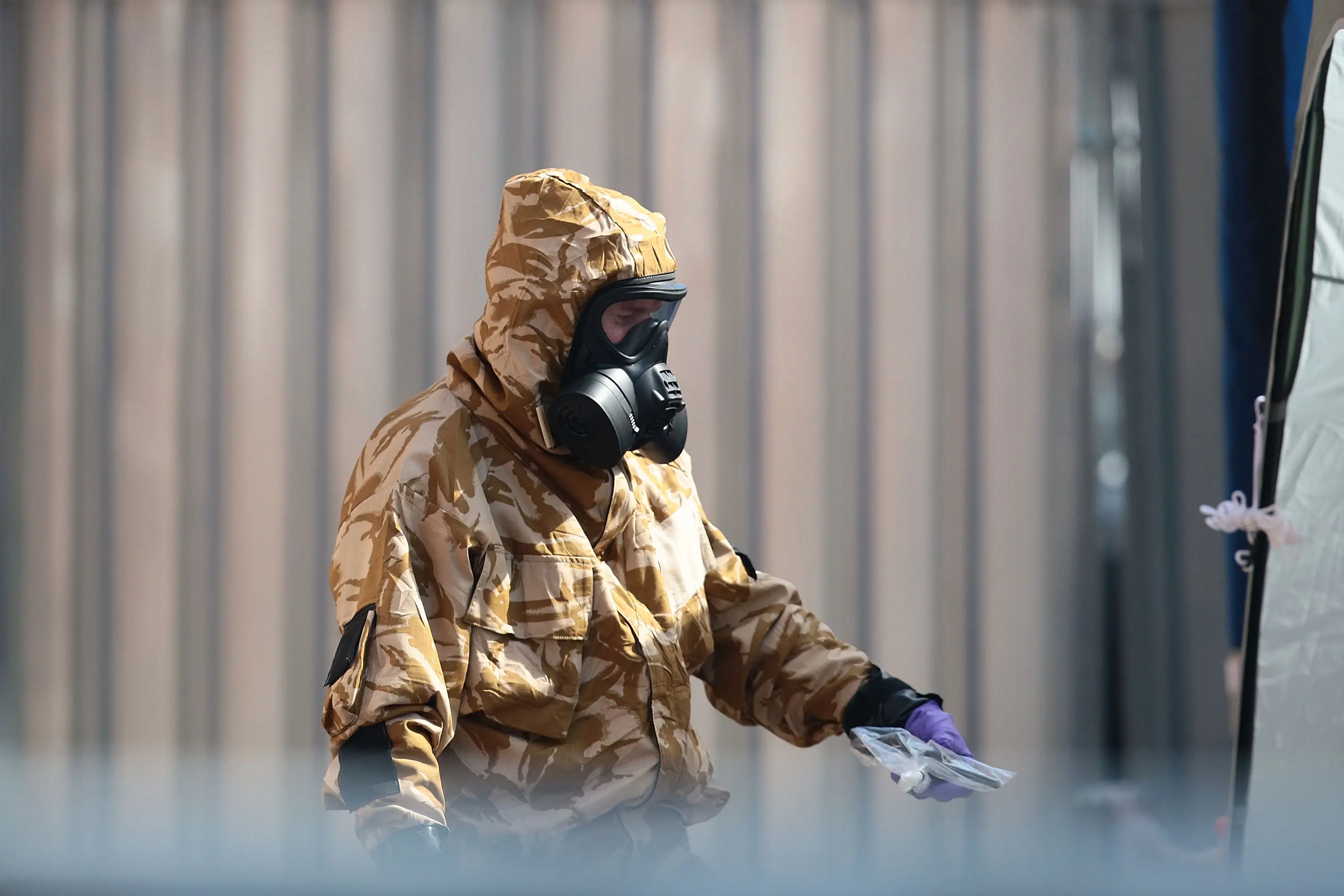
All four victims other than Sturgess survived, with it nearly killing Skripal and his daughter. Yulia was in a come for 20 days and underwent treatment described by her as 'invasive, painful and depressing'.
"Our recovery has been slow and extremely painful," she said, as per the BBC.
The British government identified two Russian nationals, known as Alexander Petrov and Ruslan Boshirov, as the men behind the attack.
It later came out these were aliases for two Russian intelligence officers, real names Alexander Mishkin and Anatoliy Chepiga.
According to the BBC, the trio were charged with conspiracy to murder, three counts of attempted murder, two counts of grievious bodily harm with intent, and one count of use or possession of a chemical weapon.
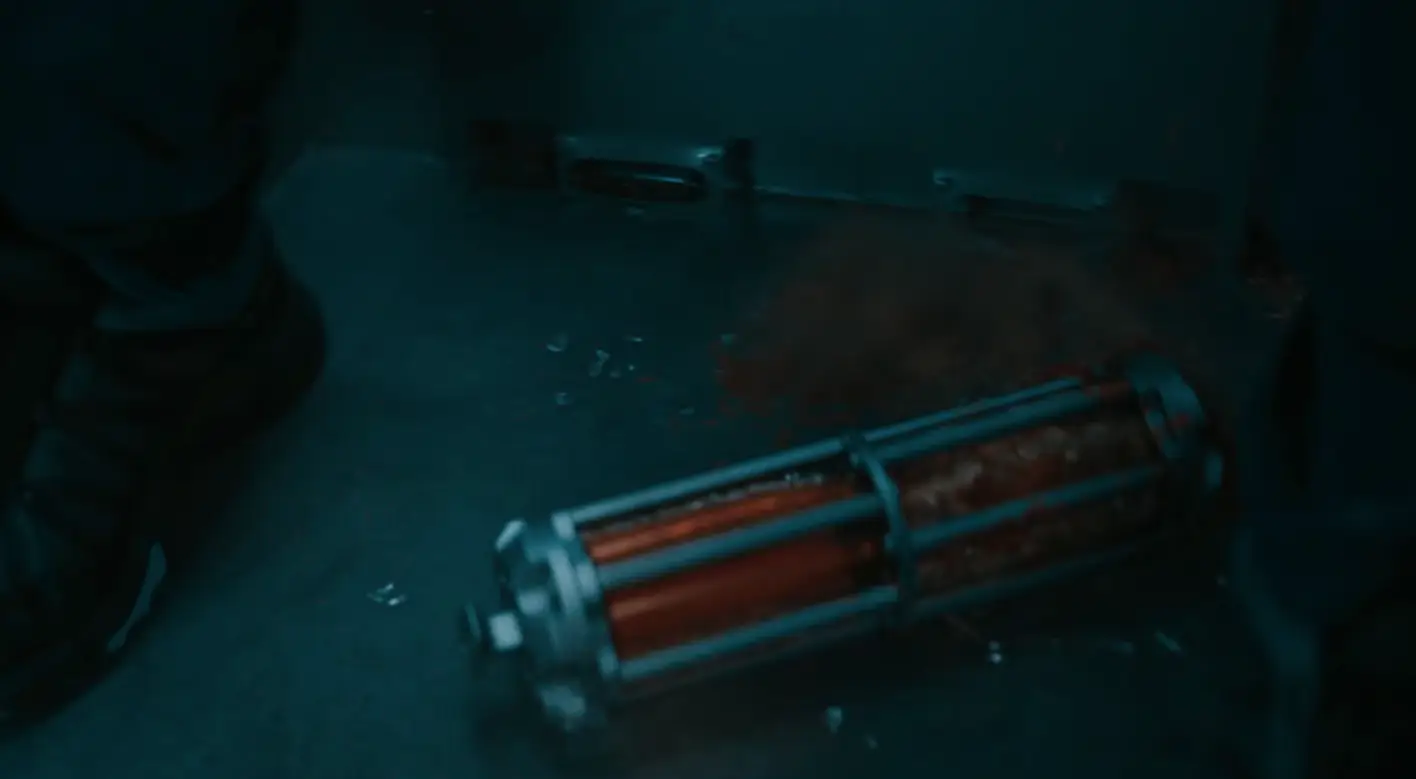
What is the treatment for Novichok?
Treatment for Novichok starts with high doses of a drug known as atropine.
Dr Peter Chai, of the Division of Medical Toxicology in the Department of Emergency Medicine at Brigham and Women’s Hospital in Boston, said that people poisoned with Novichok and other nerve agents die due to secretions – vomiting, diarrhoea and urinary incontinence that all happen at the same time.
Atropine is a drug that counteracts these effects and also increases your heart rate. This slows how quickly the Novichok goes through your system.
After buying yourself some time, the antidote for Novichok is administered; a nitrogen-containing chemical compound known as an oxime, CNN reports.
This works by stopping the Novichok from taking ahold of your nervous system and hindering it. How successful this works, though, depends on how the nerve gas is ingested and how much of it goes in to your system.
Knowing all this, in terms of Carry-on, it seems like should that weaponised Novichok have been detonated at 30,000 feet the outcome would have been rather grim for anyone involved.
Topics: Netflix, Christmas, Entertainment, Crime, Russia, US News, World News, Film